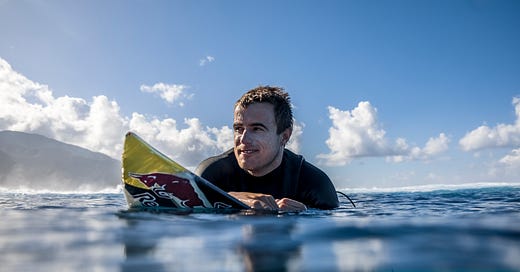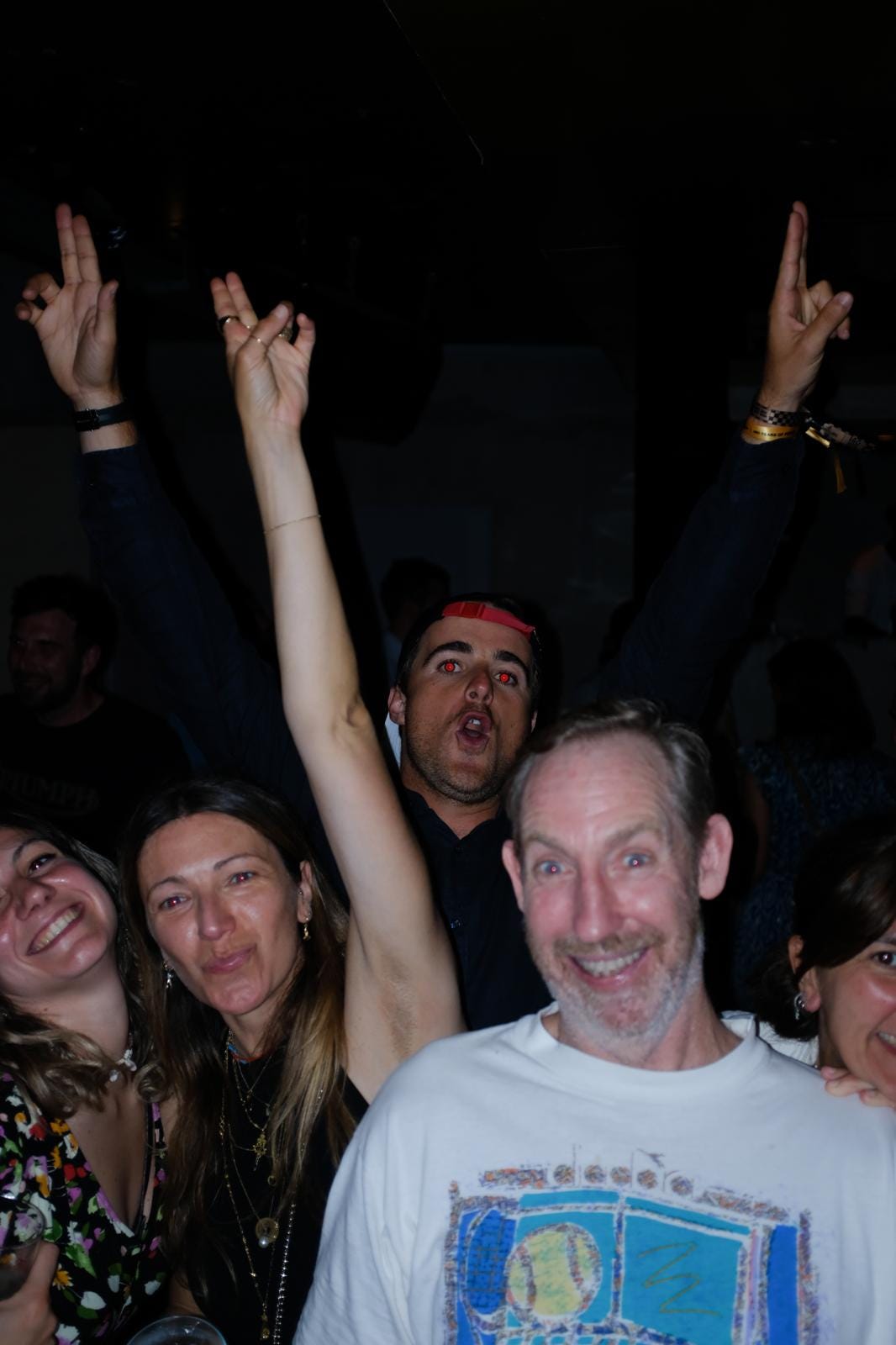Surfing's Hidden Headache
Starting a conversation on surfing’s concussion problem # 1 Audio Files with Basque Big Wave Legend Natxo Gonzalez.
“The worst was when I didn’t feel like a surfer. Surfing wasn't a goal. My only goal was at some stage in the future to sit and have a coffee with a friend with no pain. That was the extent of my ambition.” Natxo Gonzalez
It’s a fairly harrowing piece of audio. Basque big-wave surfer Natxo Gonzalez talks through a stretch when the lights went out - literally and metaphorically. He suffered two concussions - the first at Puerto Escondido then another six months later at giant Nazare (see Insta pic below.) He kept surfing, with his career on the line, even winning big wave slab events. Until it got too much. He had five months in bed, suffering an endless migraine, unable to turn the lights on, let alone go to the supermarket.
Natxo’s injuries didn’t come from hitting his head. Most, like Owen Wright’s, stem from the “whiplash” movement as the head is jerked back and forth during a wipeout or from getting hit by waves.
Yet even as one of surfing’s elite big wave surfers, Natxo had no one to turn to or very little information on the subject of surfing concussion. That is despite in the last few years several professional surfers going through a similar period of pain, isolation and depression.
Australian Owen Wright was perhaps the most high profile, but Albee Layer, Billy Kemper, Kai Lenny, John Mel, Bianca Valenti and Jamie Mitchell have all dealt with the problem. It’s not just big-wave surfers either. Aussie CT surfers India Robinson, Nikki Van Dijk, Tyler Wright, Yolanda Hopkins and Jack Robinson have had brain injuries.
For Natxo it was the free surfer Sterling Spencer’s moving and funny film Are You Serious? that inspired him to seek further help. In that Stab produced film, Spencer documents his brain trauma, and spiral into suicidal depression, and the doctor that helped his recovery.
After a local doctor however advised that his surfing career was effectively over, it was a call to his sponsor Red Bull, that changed his life. His emotional take on that is in the audio below.
After 12 months program, Natxo is now back at what he calls 80 per cent. These calls were sent after a day of surfing six-foot barrels in Indonesia. He is targeting a move back to elite big wave surfing, but knows that these injuries take time and that the recovery isn't linear.
Natxo says below how he had zero information on the injury at the start, but believes many surfers are having micro impacts and concussions every surf, and that the impact is both undocumented and huge.
The number of surfers out there who are suffering, or who have suffered, the effects of concussion and brain injuries is mind-boggling. There have been relatively few studies completed, and even anecdotal evidence is thin on the ground.
It’s a topic that I’m keen to explore. I want to talk to “average” surfers who may have been through undiagnosed and diagnosed concussions, as well as the high-profile athletes who have documented their issues and recovery. We might be looking at the tip of the iceberg.







Hi Ben, thanks for the article. Over the years I’ve met a few people who have had pretty serious recurring concussion injuries in big waves, most of them not as well-known as Natxo.
I’ve also experienced myself what I didn’t realize at the time were probably micro-injuries after a run of big surf. At the time I thought that the “punch-drunk“ feeling you tend to get was due to oxygen depletion from getting held down, but it was probably more likely due to multiple impacts wiping out. Luckily, as far as I know, my brain is still intact, although I’ve had injuries in almost every other part of my body.
A friend of mine here in Spain is a neurosurgeon and surfer, and we are both pretty interested in following up on this. As you say, there are probably a lot more cases out there than you think.
Thanks Ben, really interesting article. I suffered a few minor head injuries from surfing and general life but have been hit hard by long COVID and the cognitive issues are so similar to PCS. This article will hopefully help people reduce injuries and increase awareness in the future.